We’ve learned a lot of “useful information,” such as how to fly a spacecraft through the asteroid belt. However, the big screen often deceives us, leading to the creation of many myths that we continue to believe over the years. So, let’s clarify some of these myths based on everyday reality!
Questions That Seem Simple but Are Actually Quite Difficult
- 1. Who invented the light bulb?
- 2. How many senses do humans have?
- 3. Is the sound of an alarm clock the best way to wake up?
- 4. Do we use all of our brain’s potential?
- 5. Why do bears hibernate?
- 6. Do carrots improve eyesight?
- 7. What produces the most oxygen?
- 8. Can police track through phones?
- 9. Can autopsies solve cases?
- 10. How long do you have to wait to report someone missing?
- 11. Saving drowning people in movies vs. reality?
- 12. Two people communicating while skydiving?
- 13. Can electric shocks restart a heart?
Today, the Internet has become one of the most popular and important tools in our lives. There’s no denying that it allows us to access information and valuable knowledge much more easily and quickly than before.
However, the rapid spread of information also gives rise to somewhat “distorted” knowledge, which unintentionally becomes popular, even though these “facts” may sound quite reasonable. To help everyone untangle the common misconceptions on the Internet, let’s answer the questions below and see what the real answers are!
1. Who invented the light bulb?
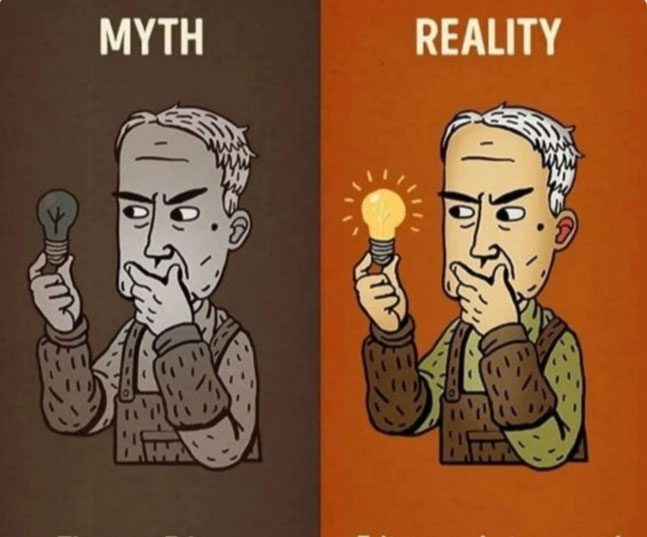
Most people will immediately think of the scientist Thomas Edison when they hear this question. However, Edison was merely the one who discovered how to make the light bulb shine for an extended period.
2. How many senses do humans have?

People commonly refer to the five senses: sight, hearing, smell, taste, and touch. However, these are just the primary senses. In addition to these, humans are believed to have at least 21 other senses, such as balance, temperature sensation, hunger, and thirst…
3. Is the sound of an alarm clock the best way to wake up?
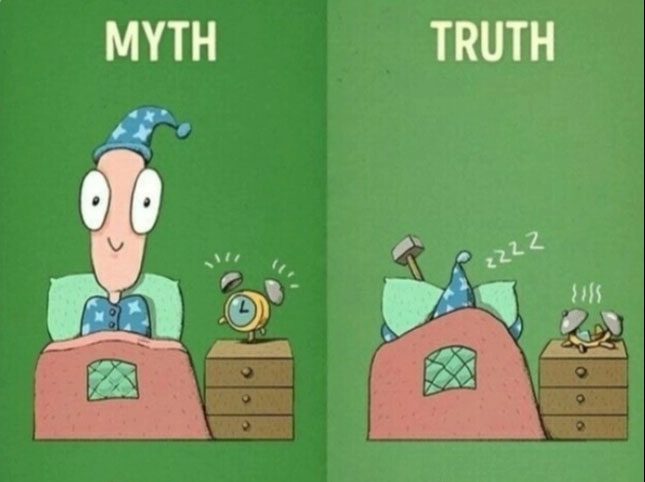
Many believe that waking up early or immediately upon hearing the alarm clock is a good habit. However, being jolted awake by a loud alarm is actually not good for health at all.
4. Do we use all of our brain’s potential?

This is perhaps a misconception held by many, which has also appeared in various Hollywood films, further convincing people of its truth. In reality, we use nearly 100% of our brain at all times, even when we sleep. While certain brain areas may be more active during specific activities, other parts of the brain continue to function and are not “turned off.”
5. Why do bears hibernate?

As winter approaches, bears search for safe places to undergo their hibernation process, which lasts about six months. However, the reason bears hibernate is not just due to cold weather, but rather because the food supply decreases significantly in winter, making it difficult for them to find food. Thus, this is a way for them to conserve energy and survive.
6. Do carrots improve eyesight?
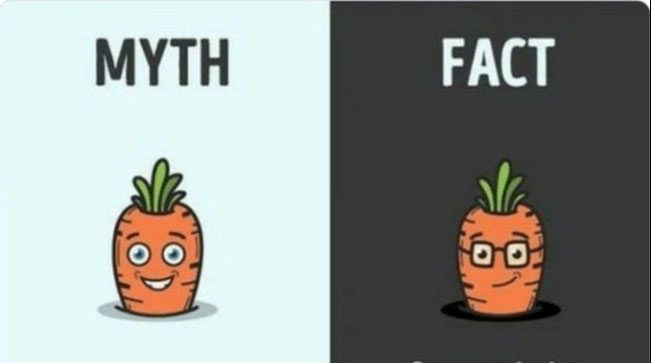
Whenever people eat carrots, many believe that it will help improve their eyesight due to the high vitamin content in this vegetable. However, this is actually a common misconception in popular culture. Nonetheless, carrots are still a healthy food that helps strengthen muscles and combat degeneration.
7. What produces the most oxygen?

If your answer is green plants, then you are mistaken! In fact, the oxygen produced by green plants only accounts for about 30%. About 50-70% of the remaining oxygen is produced by the oceans, specifically by marine phytoplankton (microorganisms, plants, algae, and bacteria, especially diatoms). This is also why many phytoplankton and coral reefs are endangered due to global warming.
8. Can police track through phones?
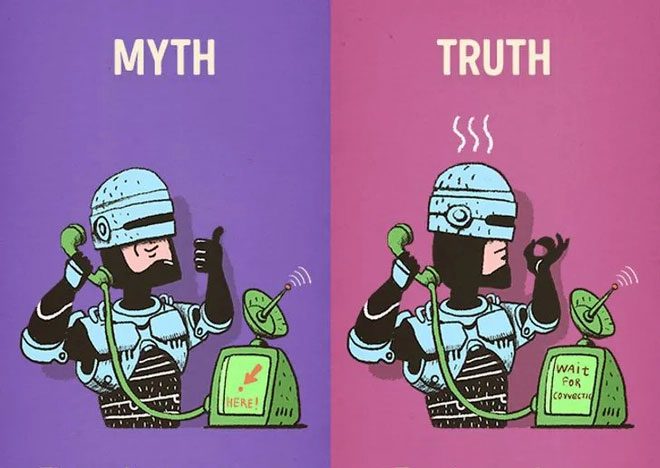
In crime films, police or law enforcement agencies can trace criminals through phone calls within a few minutes. While it is true that phone tracking can be done, it actually takes hours rather than just a few minutes as depicted on screen.
9. Can autopsies solve cases?
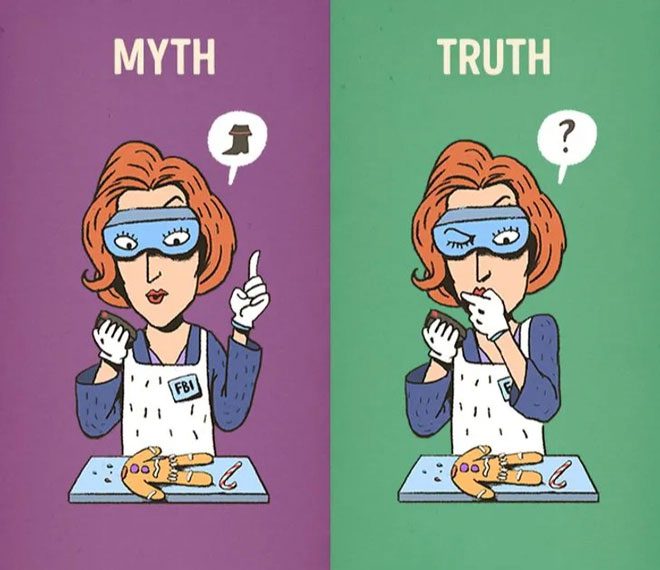
Autopsies are known as a highly specialized surgical method to determine the cause of death and assess whether there are any diseases or injuries present in the body. However, movies often give us the misconception that autopsies can answer many mysteries and sometimes solve cases, while in reality, they only help police gather evidence.
10. How long do you have to wait to report someone missing?
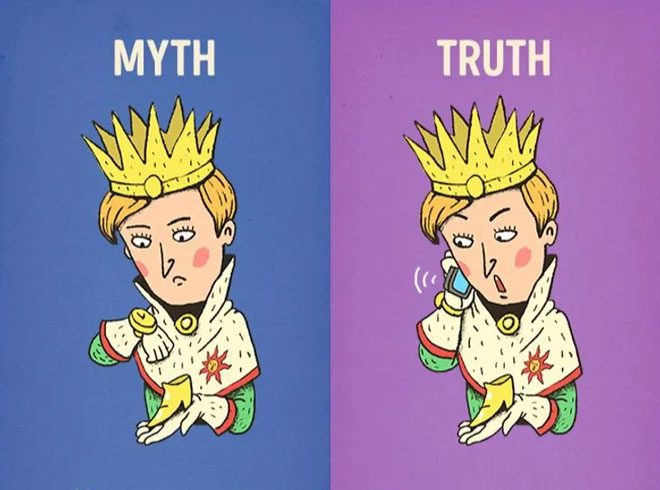
In many films, it is believed that a person must be missing for about 24 hours before the police will start searching and investigating. However, in reality, if you are very concerned, you can report to the police immediately.
11. Saving drowning people in movies vs. reality?
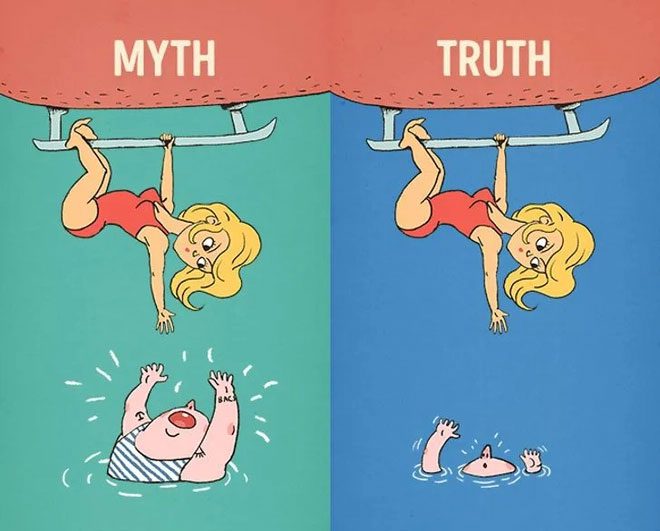
Many movie scenes depict characters who accidentally drown screaming loudly and thrashing about to attract the attention of others. However, reality shows that it is very difficult for drowning individuals to get the attention of those on land or in helicopters.
12. Two people communicating while skydiving?
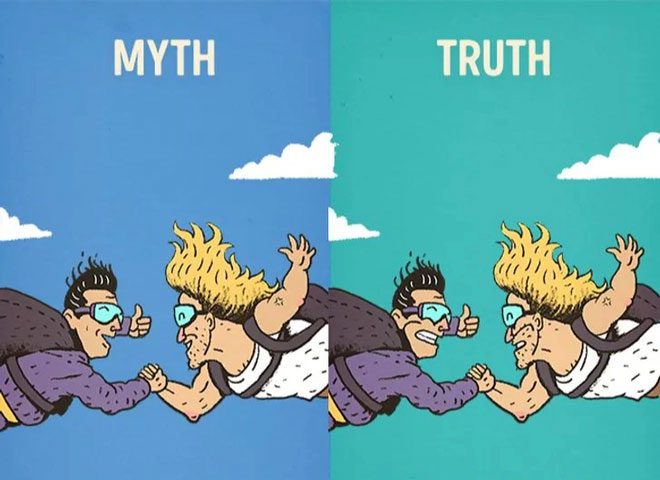
Known as one of the legendary scenes in action blockbusters, the scene of people skydiving while discussing plans has inspired many children. However, in reality, the strong winds during a skydive would make it impossible for these individuals to hear each other, let alone communicate or discuss plans.
13. Can electric shocks restart a heart?

Medical-themed films never lack scenes where doctors use external electric shock techniques to revive their patients and help their hearts start beating again. In reality, this technique is used to restore heart rhythm or correct rapid arrhythmias in patients rather than to make the heart start beating again.


















































